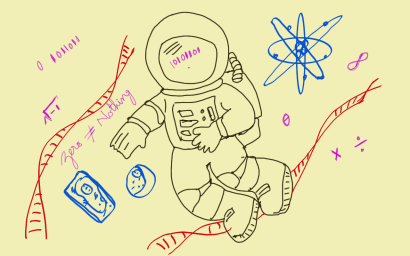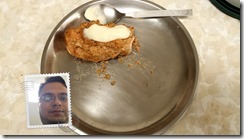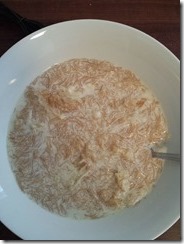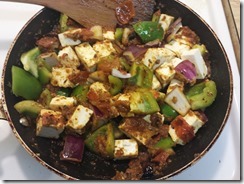 March for science is a way for the scientists to make themselves heard and perhaps, to make the general public realise that the independence of science is under threat. But, what has happened recently that is so wrong that the scientists had to leave their laboratories and field work to protest on the streets. Why is it that the general public is talking about issues such as terrorism, feminism, LGBTQ rights, freedom of expression but not the independence of science? The reason is that the scientific community has failed to create a face of its own to promote its achievements. Let me explain this further. We all eat food and thank the local grower, farmer, and even acknowledge the agro-companies for nature’s bounty. However, how many times do we, even the scientists, think about the efforts of grad students, science technicians, and principal investigators? I am writing this article on a laptop that has a beautiful 4K touchscreen and is running hundreds of processes in the background, and you are reading this on some kind of an electronic gadget that is equally awesome and far more capable than a typewriter. However, the manufacturers such as Apple, Dell, Samsung have become the face of this technology, and very little thought is given to the engineers working day-and-night to bring to us the technologies that are making our life easier. In fact, everything around us and beyond our sight, from a nano-bead in your face wash to a giant spaceship, has been made possible by the scientific community. I even know some scientists who model the properties of ceramic so that our coffee mugs have better design and strength. When everything around us is a gift of scientific research, then what has happened that scientists are on streets demanding the right to conduct better science without political interference? Probably we all have taken things for granted, and unless the scientists come up with something such as the discovery of gravitational waves, it does not make news headlines. Although, a common person may not even appreciate the importance of the discovery of gravitational waves.
March for science is a way for the scientists to make themselves heard and perhaps, to make the general public realise that the independence of science is under threat. But, what has happened recently that is so wrong that the scientists had to leave their laboratories and field work to protest on the streets. Why is it that the general public is talking about issues such as terrorism, feminism, LGBTQ rights, freedom of expression but not the independence of science? The reason is that the scientific community has failed to create a face of its own to promote its achievements. Let me explain this further. We all eat food and thank the local grower, farmer, and even acknowledge the agro-companies for nature’s bounty. However, how many times do we, even the scientists, think about the efforts of grad students, science technicians, and principal investigators? I am writing this article on a laptop that has a beautiful 4K touchscreen and is running hundreds of processes in the background, and you are reading this on some kind of an electronic gadget that is equally awesome and far more capable than a typewriter. However, the manufacturers such as Apple, Dell, Samsung have become the face of this technology, and very little thought is given to the engineers working day-and-night to bring to us the technologies that are making our life easier. In fact, everything around us and beyond our sight, from a nano-bead in your face wash to a giant spaceship, has been made possible by the scientific community. I even know some scientists who model the properties of ceramic so that our coffee mugs have better design and strength. When everything around us is a gift of scientific research, then what has happened that scientists are on streets demanding the right to conduct better science without political interference? Probably we all have taken things for granted, and unless the scientists come up with something such as the discovery of gravitational waves, it does not make news headlines. Although, a common person may not even appreciate the importance of the discovery of gravitational waves.
March for science is not in response to the latest developments only, but it is an outburst of scientists who have been tolerating wrong science policies since a long time. For a large part, the scientific fraternity is responsible for the current situation. Scientists, for some reason, have lived with the belief that the only way to serve science is by working tirelessly. They have distanced themselves from the political and corporate labels which are the most effective vehicles of public outreach. Strangely, the scientists are also expected to be non-believers or atheists. This is probably because scientific discoveries have usually contradicted the orthodox religious beliefs and the orthodox, religious society has felt threatened by the logical thinking. Since the political system and working of the political class of the western hemisphere have been influenced by the religious movements, the mistrust between politicians and scientists has continued to exist even today. Moreover, most scientists believe that getting into politics is dirty and requires losing moral values. The scriptures from ancient India tell us that scientific research was a big part of their civilization. However, only the famous scientific philosophers (sages/rishis), or the philosophers inducted in the royal advisory group received funding from the ruling emperor; rest of the rishis had to send their students to ask for donations (bheeksha) from the citizens. Fortunately, the philosophers and their students were revered in ancient India and donating to them was considered a pious job. In return, the ancient philosophers kept themselves detached from worldly pleasures so that the public did not blame them for enjoying on the public donations. Unfortunately, the public still expects the scientists to remain detached from the pleasures of the world, politics, and religion. In many countries, the professors are not well paid, and all they receive from the society is respect. Even the scientists have complied to this public notion and have remained detached from interfering in political decisions and governance. This means that the scientists lack the lobby to influence our lawmakers. For example, a company that manufactures nuclear reactors will have a lobby to influence the lawmakers; whereas, the nuclear scientists are expected to wear white coats and work tirelessly in the R&D facility. If the nuclear scientists need a pay hike, they will have to request the business heads, who will then find out a way to influence the government to loosen their purses. Universities and educational institutes are the largest employers of scientists and science teachers. Who lobbies for them? If a province or a state’s budget is in the red, the university budget is the first to be reduced. The administrators of the universities then pass on the budget cuts to the departments conducting engineering and basic science research. Consequently, we are in a situation where a scientist is expected to wait for the breadcrumbs that the corporates and politicians throw at them. The society does not care much because scientists do not strap bombs on their chests or shoot people to attract attention to their cause. Instead, the scientists work day and night in silence to make everybody’s life better. Also, the scientists will never take up violent means to get themselves heard because their analytical skills are better and they understand that violence brings no good. However, the time has come when the scientists will need to walk on the streets and make the public aware of the importance of scientific research and that it needs money. Scientists will also have to do a better job of communicating the importance of research in basic science. The public usually does not have access to science magazines and journals; they read blogs, newspapers and tabloids. Social networking websites will have to be used in a much better way to reach the masses. The scientific community will have to stop pleasing the politicians and corporates and will have to come to the streets to justify the cost of expensive instruments and facilities such as the Large Hadron Collider. Above all, the scientists will have to come forward to join politics because they know things better. A march for science is a step forward in that direction but the scientists will have to be more aggressive in putting forward their agenda and letting people know that scientific system has a rigorous system of peer review to weed off pseudoscience, and therefore they can be trusted.
N.B. the comments and thoughts are welcome. I am a student of science and believe that this article can only be improved through a peer review process.
To that second reviewer: please tone down your harsh comments 😛















 Being awarded a
Being awarded a 